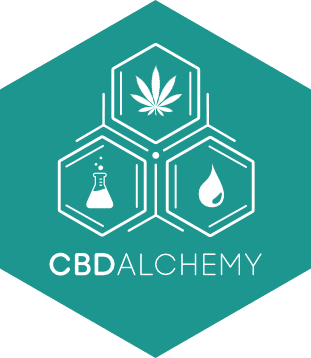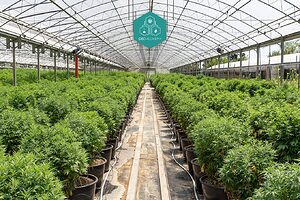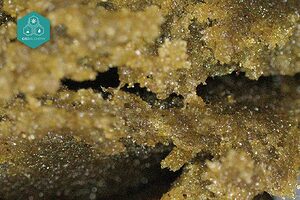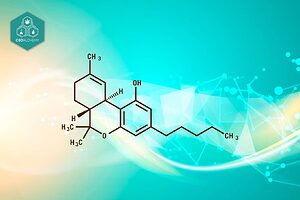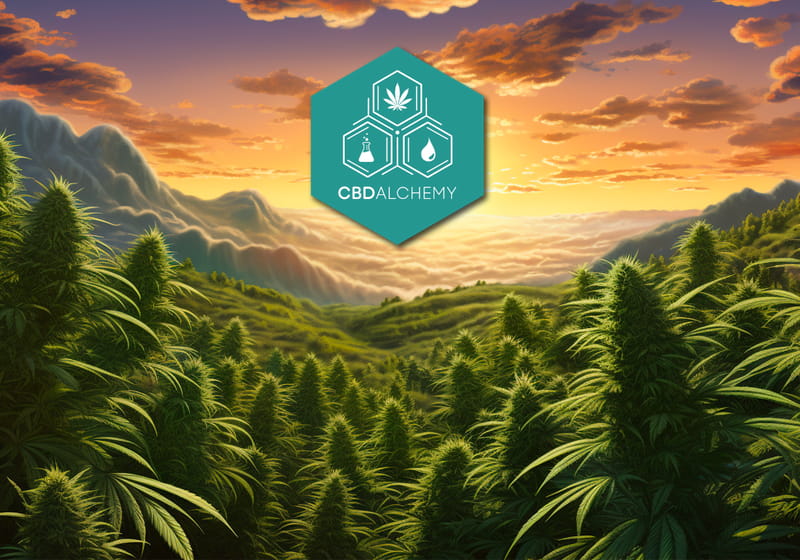CBD oil has become popular worldwide as a health supplement. CBD (cannabidiol) is a component of hemp that can be extracted from the plant and then added to oil or tincture, encapsulated, or included in foods and/or topical products. CBD is also present in cannabis, but it is not an intoxicating cannabinoid in the way that THC can be (CBD doesn’t get you high).
Benefits of CBD Oil
Proponents of CBD report that it can help relieve pain, calm anxiety, and soothe inflammation. CBD interacts indirectly with the CB1 receptors all over the body that are part of our endocannabinoid system, which works to maintain homeostasis in the body and acts as a “master control system of virtually all physiology.”¹ Learn more about your endocannabinoid system in our blog.
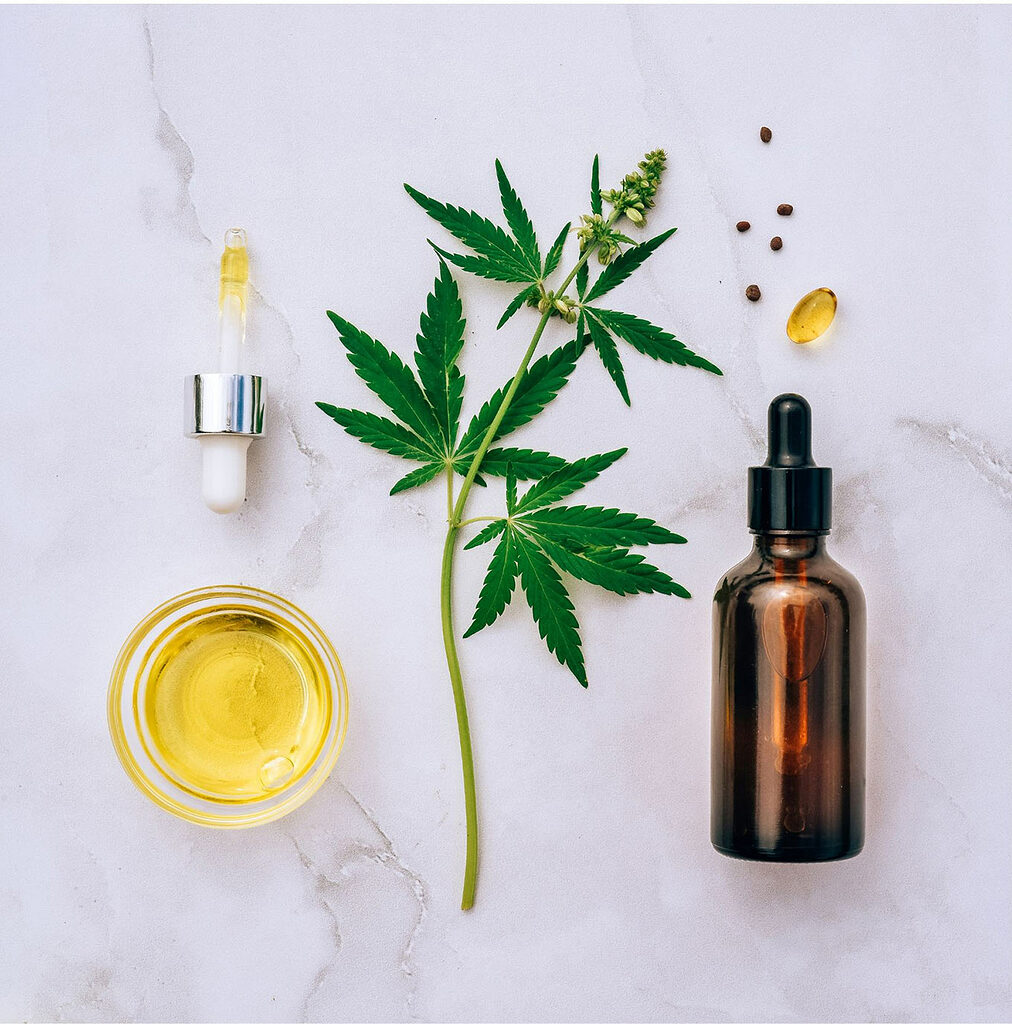
CBD Terminology
To fully understand everything you’re getting from CBD, here are some key terms you need to know:
- Cannabinoids: Cannabinoids are molecules that interact with the CB1 and/or CB2 receptors in our endocannabinoid system.
Endocannabinoids are cannabinoids produced inside the body (anandamide and 2-AG).
Phytocannabinoids are plant molecules that are highly prevalent in cannabis and hemp, although they can be found in other plants as well. Some common phytocannabinoids include CBD, THC, CBG, and CBN, among others. - Cannabidiol (CBD): CBD is the most common cannabinoid in hemp and the 2nd most prevalent cannabinoid in cannabis. It is a non-intoxicating substance.
- Tetrahydrocannabinol (THC): The more commonly known cannabinoid THC is what provides the psychoactive effects of cannabis (it gets you high). Legal hemp products must contain less than 0.2% THC.
- Terpenes: Terpenes are present in nearly all plants on earth. They are “essential oils” that give plants, flowers, and fruits their different fragrances. Some terpenes have “anticancer, antimicrobial, antifungal, antiviral, antihyperglycemic, analgesic, anti-inflammatory, and antiparasitic properties.”²
- Flavonoids: Plant compounds that may have antioxidant benefits.
- Tincture: A CBD tincture contains hemp extract suspended in an alcohol/water base.
- Oil: CBD oil contains hemp extract in an oil (typically MCT or hemp oil)
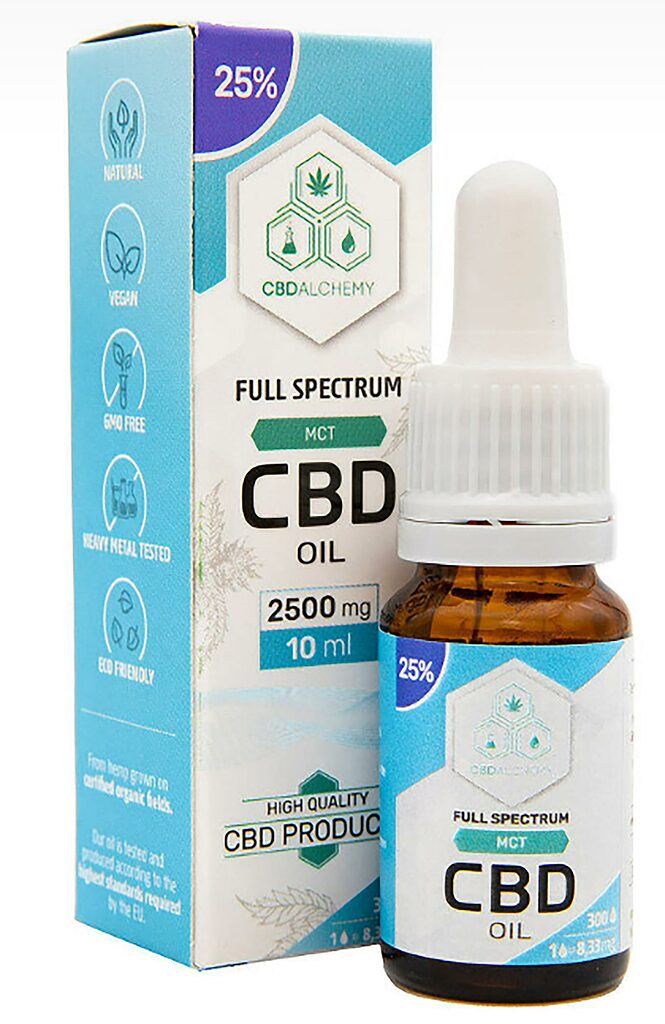
How to Read CBD Labels
The label on your CBD should be informative. At the very least, after reading the label, you should know:
- What type of CBD it is
- How many milligrams of CBD it contains
- If it is an oil or a tincture
- What other ingredients it includes
- If it has been 3rd-party tested
- If the hemp was grown naturally
Keep on reading to learn more about each of these criteria and how to choose the best CBD!
Types of CBD
There are three main types of CBD:
- Pure CBD contains CBD only. No other cannabinoids, terpenes, flavonoids, or any other components have been included in this formulation.
- Broad spectrum CBD contains CBD along with other cannabinoids like CBG, CBN, and others. Terpenes and flavonoids are also present in broad spectrum CBD, but there is zero THC– it has all been removed.
- Full spectrum CBD contains all of the cannabinoids, terpenes, and flavonoids that whole hemp contains. This includes the small amount of THC that is legally allowed in hemp: less than 0.2%.
There is some evidence to suggest that full spectrum CBD is the most effective type because of the entourage effect.³ This describes the synergistic relationship between cannabis components. CBD works most effectively with your endocannabinoid system when it is accompanied by its superhero team of cannabinoids and terpenes.
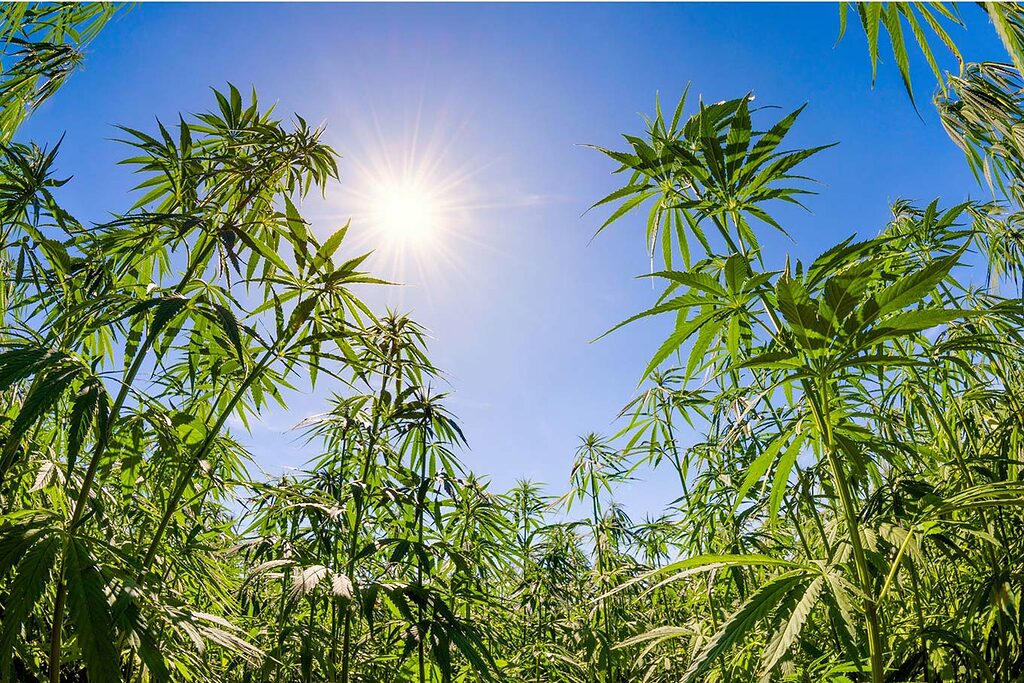
How to Find the Best CBD
So what qualities should you look for when shopping for CBD? The best CBD companies are transparent about their hemp source, extraction methods, and processing techniques. Make sure to check for the following information:
3rd Party Testing
CBD from any reputable source will have been tested by an independent lab to determine cannabinoid and terpene content, as well as ensuring that it does not contain any contaminants such as pesticides, heavy metals, or mold.
Your CBD company should provide a detailed Certificate of Analysis (CoA) for every batch of product they sell. If you do not see a CoA available, ask!
Ingredients
Check the ingredient list! The ingredients should be easy to read and recognizable. The only ingredients in CBD should be hemp extract, and MCT or hemp oil (in oils) or alcohol (in tinctures). Some CBD products may also have added flavors or vitamins.
Source
The best CBD companies are happy to share the source of their hemp plants. Make sure to only buy domestic CBD that has been grown naturally to avoid nasty pesticides and chemicals.
Pricing
It’s true, quality CBD is not cheap. But its benefits can be affordable for most budgets. While some CBD companies may truly offer more value, steer clear of any whose prices seem suspiciously low (probably an inferior product that may not contain CBD at all) or who offer you free samples up front (most likely a scam to get your credit card information).
When comparing CBD prices, make sure to take the number of milligrams in the bottle into account. More expensive products may actually end up being a better deal when you consider the price per milligram of CBD.
What is the Best CBD Company?
CBD Alchemy is proud to embody everything you need from a CBD company. From soil to oil, we ensure a clean growing, extraction, and bottling process. Every batch of our CBD is backed by a certificate of origin and laboratory analysis.
CBD Alchemy offers pure, broad spectrum, and full spectrum CBD oil in a variety of formulations, as well as a variety of other pure and effective wellness products. Shop now!
Bibliography and additional resources:
¹ Konieczny, E., & Wilson, L. (2018). In Healing with CBD: How cannabidiol can transform your health without the high (pp. 47). Ulysses Press.
https://www.amazon.com/Healing-CBD-Cannabidiol-Transform-without/dp/1612438296
² Cox-Georgian D, Ramadoss N, Dona C, Basu C. Therapeutic and Medicinal Uses of Terpenes. Medicinal Plants. 2019 Nov 12:333–59. doi: 10.1007/978-3-030-31269-5_15. PMCID: PMC7120914.
https://www.ncbi.nlm.nih.gov/pmc/articles/PMC7120914/
³ Konieczny, E., & Wilson, L. (2018). In Healing with CBD: How cannabidiol can transform your health without the high (pp. 77). Ulysses Press.
https://ulyssespress.com/books/healing-with-cbd/
